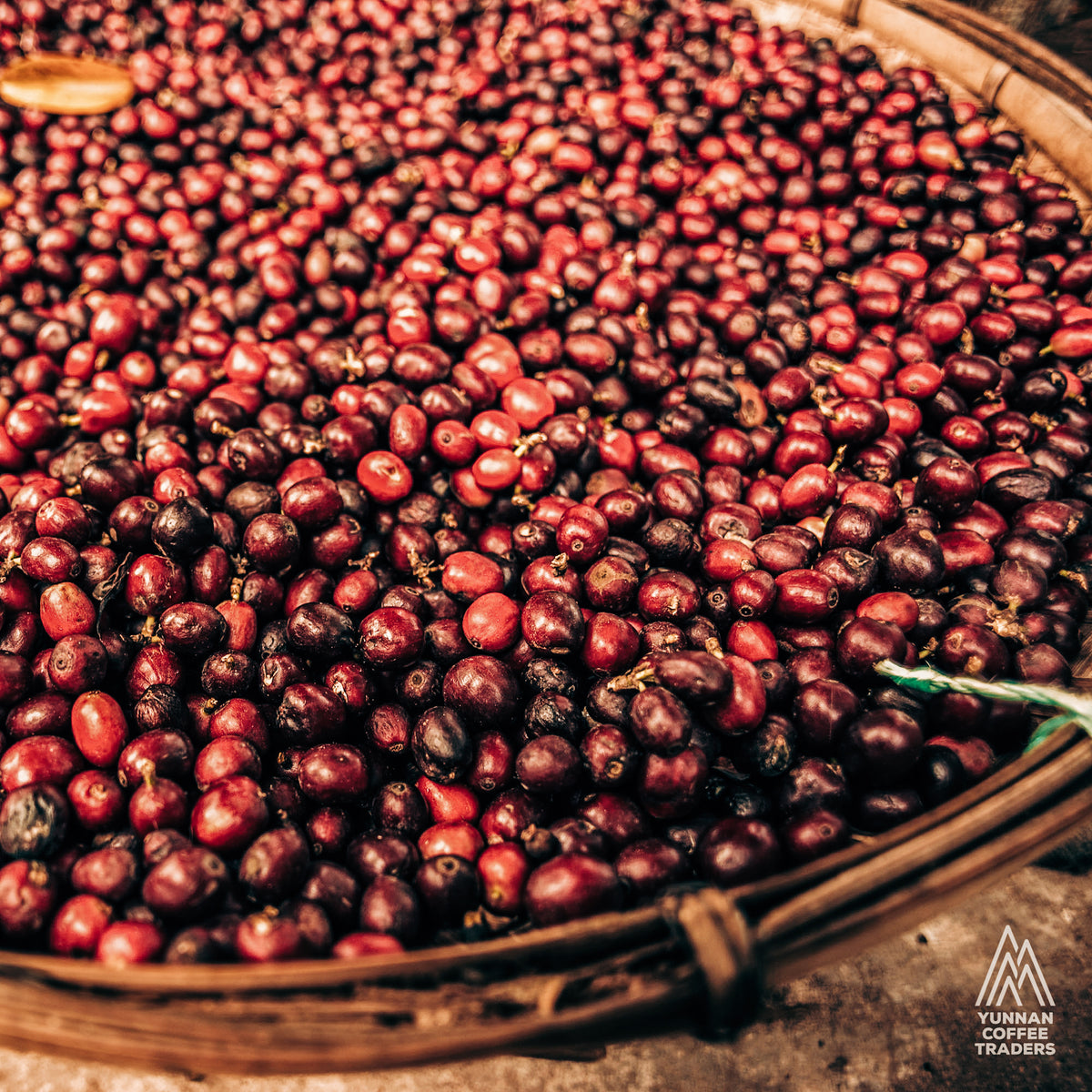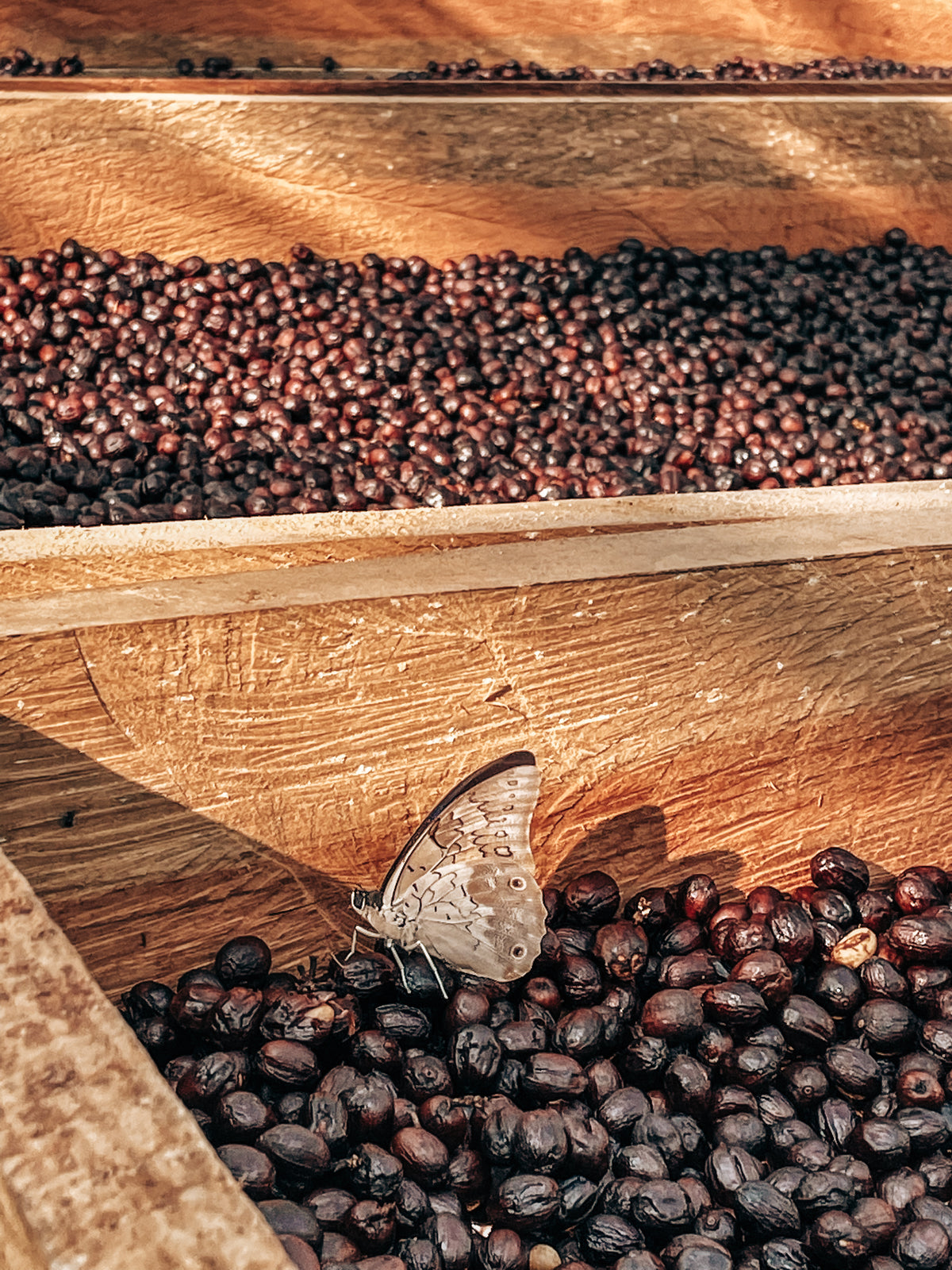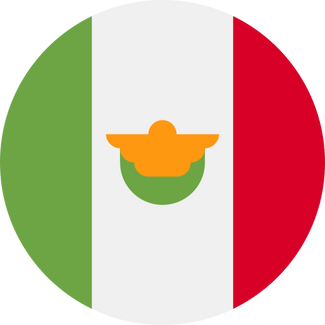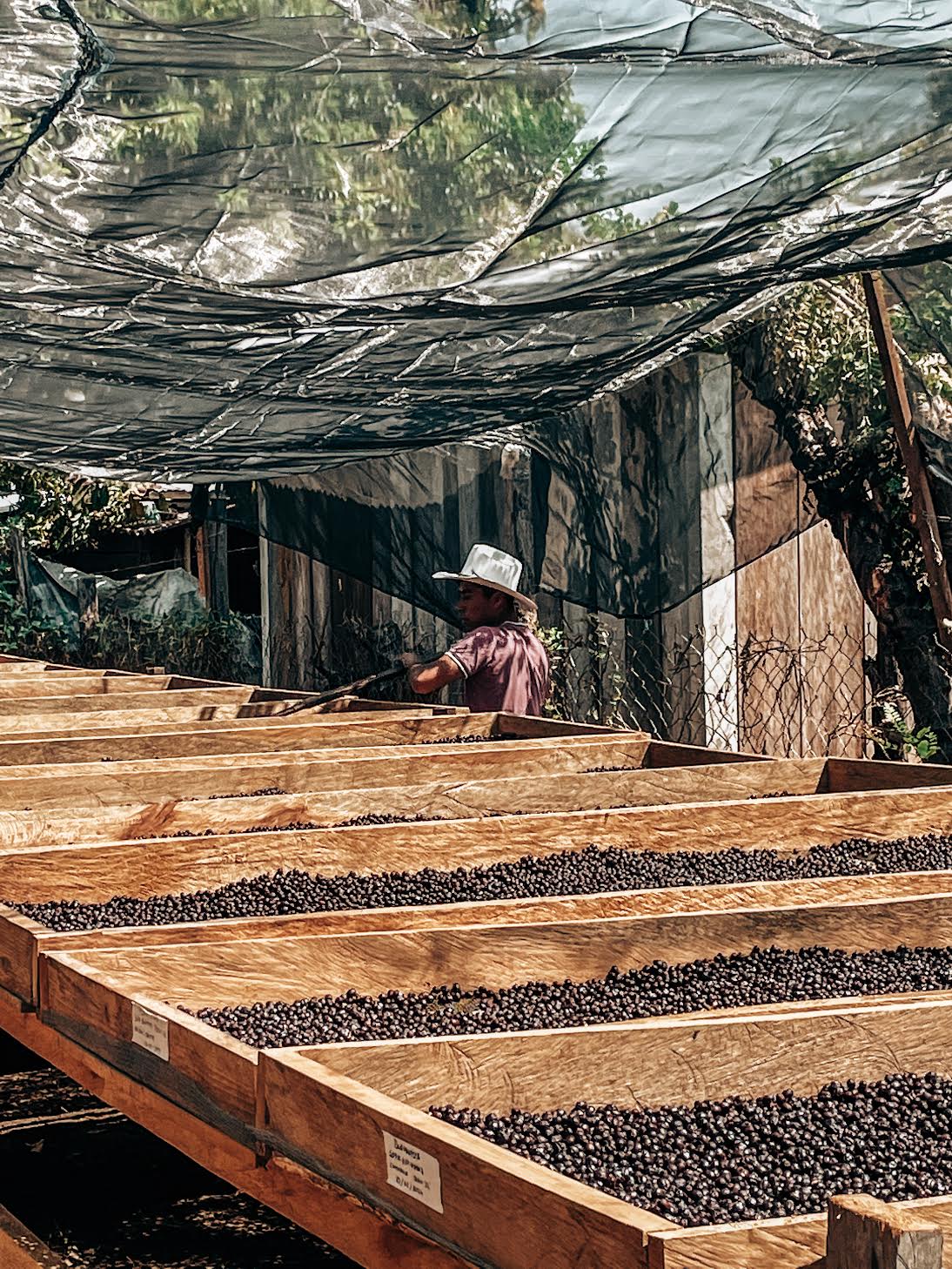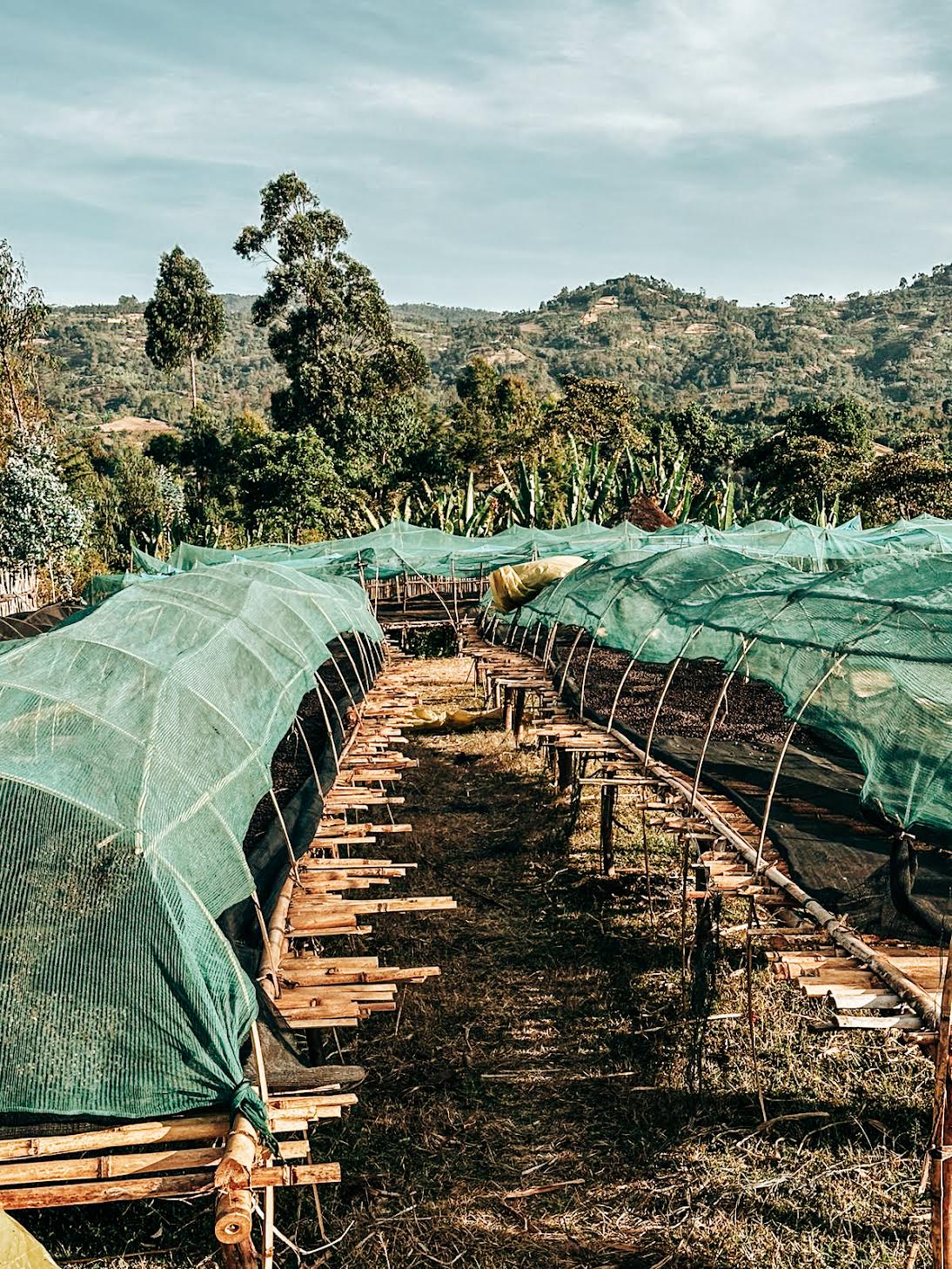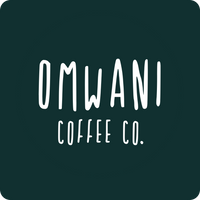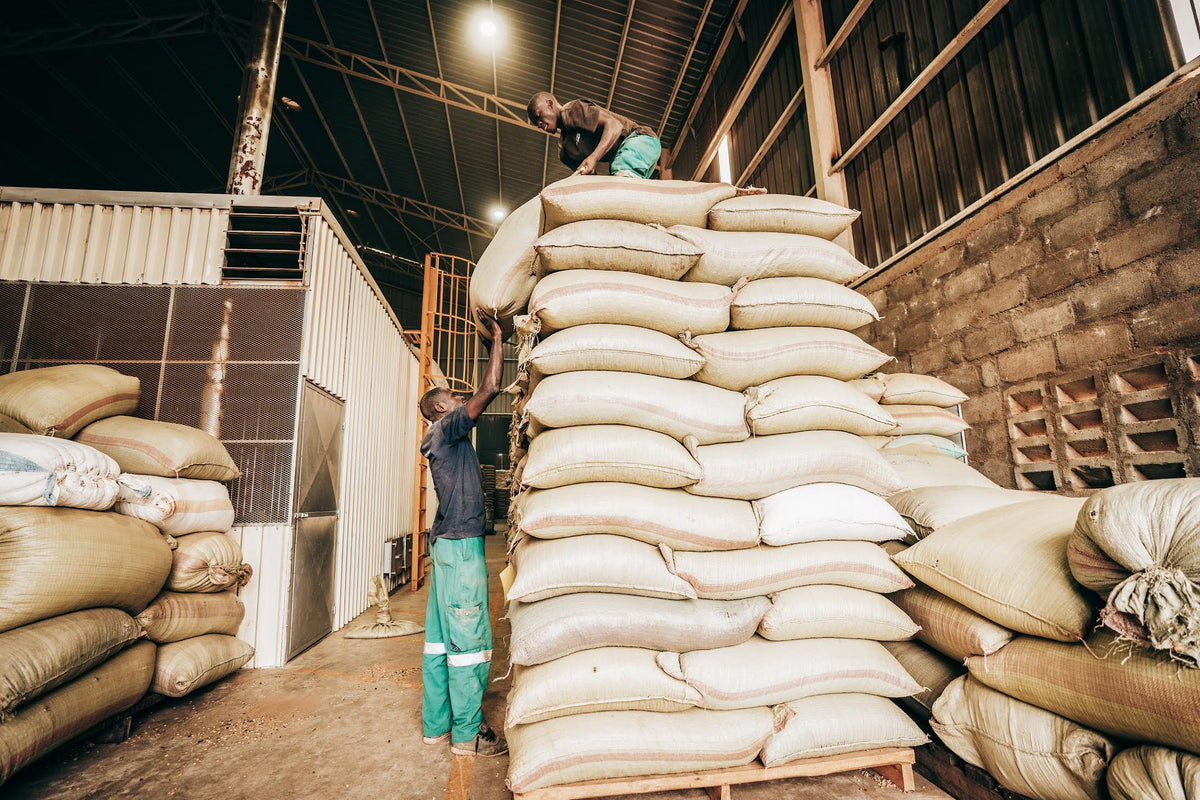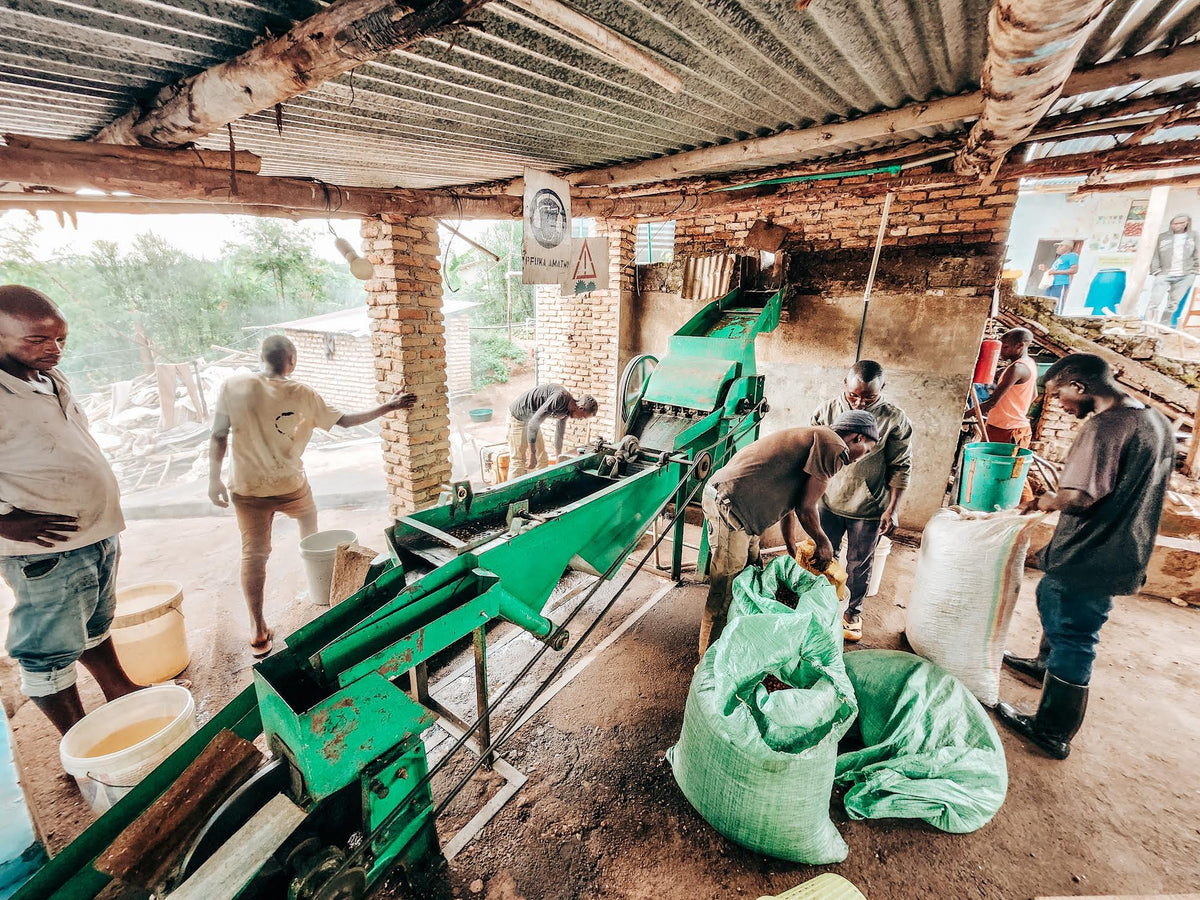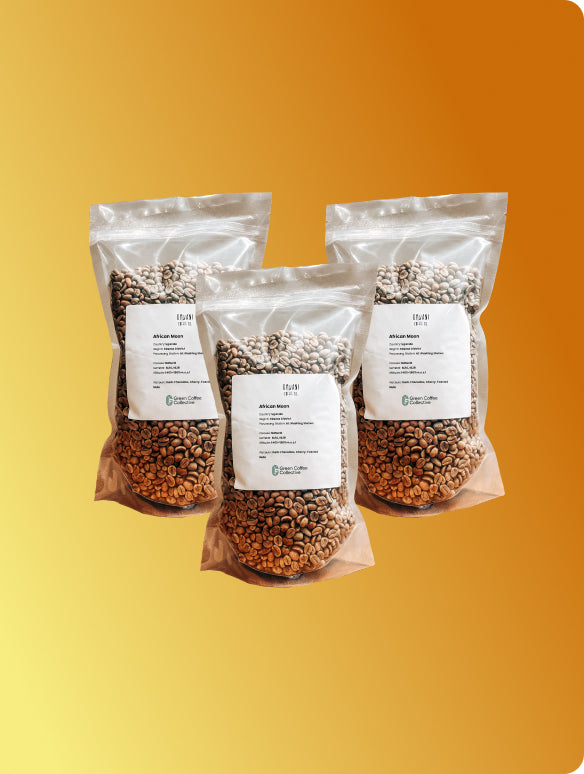-
Available now
In warehouse and ready to go, unless stated otherwise, our coffees are already landed through our network of partners
-
Pay in your preferred currency
We support +30 currencies, so pay in whatever format that suits you best.
-
Buy now, pay later
Relaxed payment terms to suit you, we offer interest free finance and extended payment terms
Popular Zimbabwe Coffees
These unroasted Burundi coffees have great reviews and get a lot of attention on Green Coffee Collective.
-
Banka Natural
Cupping Score85.25Processing methodVarietalCatimor (P3 / P4)Main flavour notesCherry Compote | Milk Chocolate | CaramelExplore nowLow Stock -
Nuevo Vergel | Maragogype Natural
Cupping Score87.0Processing methodVarietalRed MaragogypeMain flavour notesStrawberry | Caramel | MandarinExplore nowIn Stock+5kg left -
Marco Romero | Bourbon Natural
Cupping Score86.5Processing methodVarietalRed BourbonMain flavour notesRed Fruits | Strawberry | Plum | Hazelnut | SilkyExplore nowIn Stock+15kg left
Quick stats about Zimbabwe Green Coffee
-
Typical Zimbabwean coffee harvest period
-
Key Zimbabwean coffee producing regions
-
Most common Zimbabwean coffee varietals
-
Zimbabwean families who rely on coffee for income
-
Zimbabwe's position in global coffee export rankings
Top-rated Zimbabwe Coffee for Home Roasting
The roasting community agree: these coffees are highly rated for quality, consistency and transparency
-
Mitiku Yabato Natural
Cupping Score87.75Processing methodVarietal74158 , 74110 , Local Land RacesMain flavour notesBlueberry | Creamy | UmamiExplore nowOut of Stock -
Agri Evolve Pulped Anaerobic
Cupping Score86.75Processing methodVarietalSL 14 , SL 28Main flavour notesOrange | Tropical FruitExplore nowOut of Stock -
Mbare Lot 2
Cupping Score85.25Processing methodVarietalRed BourbonMain flavour notesBlack Tea | Brown Sugar | Candied CitrusExplore nowOut of Stock
Expert Coffee Producers from Zimbabwe
Your guide to Zimbabwe Coffee
-
History of Zimbabwean coffee
-
When is the best time to source Zimbabwean coffee?
-
How to import coffee from Zimbabwe
-
What does Zimbabwean coffee taste like?
Our Partners Sourcing Zimbabwe Coffee
Your questions, answered
What is the Green Coffee Collective?
We’re a community of coffee producers and sourcing experts, all working together to make green coffee easy to access—whether you’re a hobby roaster at home or a professional roasting hundreds of tonnes a year. Our platform is designed to simplify buying green coffee, just like any other online shopping experience. No fuss, just great coffee at your fingertips.
How do I find the right coffee for me?
It’s super easy! Just head to our coffee pages and use the search filters to narrow down what you’re after. Whether it’s origin, process, or variety, the filters make it simple to find exactly what you want. You can also check out the main coffee categories through the top menu on our site. Give it a go—it’s straightforward, and if you need help, we’re always here!
Are your coffees ethically and sustainably sourced?
Absolutely! We source all our coffees either directly from producers or through trusted sourcing partners who are just as committed to ethical practices as we are. We take the time to ensure the people behind the coffee are treated fairly. If you want to learn more, you can dive into our values.
Can I cancel my order?
No problem! If your order hasn’t shipped yet, just drop us an email at orders@greencoffeecollective.com with your order ID, and we’ll take care of it. If it’s already on its way, we can still help. We’ll just need to arrange a collection. Either way, email us and we’ll sort it out for you. You’re in control!
How do I know your coffees are top quality?
We totally get it—quality is everything! That’s why we offer samples for almost all our coffees, so if you’re unsure, you can try it yourself before committing. Plus, every coffee comes with a detailed, easy-to-read cupping report where we break down the scores using SCA protocol and list all the flavor notes. We’re all about transparency, so you’ll know exactly what you’re getting!
How can I get in touch with your team?
Yes, absolutely! We love hearing from our customers. If you’ve got a question or need any help, just shoot us an email at hello@greencoffeecollective.com, and a member of our team will be happy to assist you. We’re always here to make sure you’re taken care of!
What sizes or quantities can I order?
We offer coffee starting from as little as 0.5kg (1 lb) all the way up to full sacks. If you’re looking for larger quantities than what’s listed on our site, just get in touch! We’d be happy to help you organize and place a custom order. We're here to make sure you get exactly what you need.
How fast will I get my order?
If you choose express shipping, your order could arrive in as little as 24 hours (depending on your location). For most orders, if you place it before 12pm, we’ll ship it out the same day! Otherwise, it’ll be dispatched the next day. We aim to get your coffee to you as quickly as possible.


